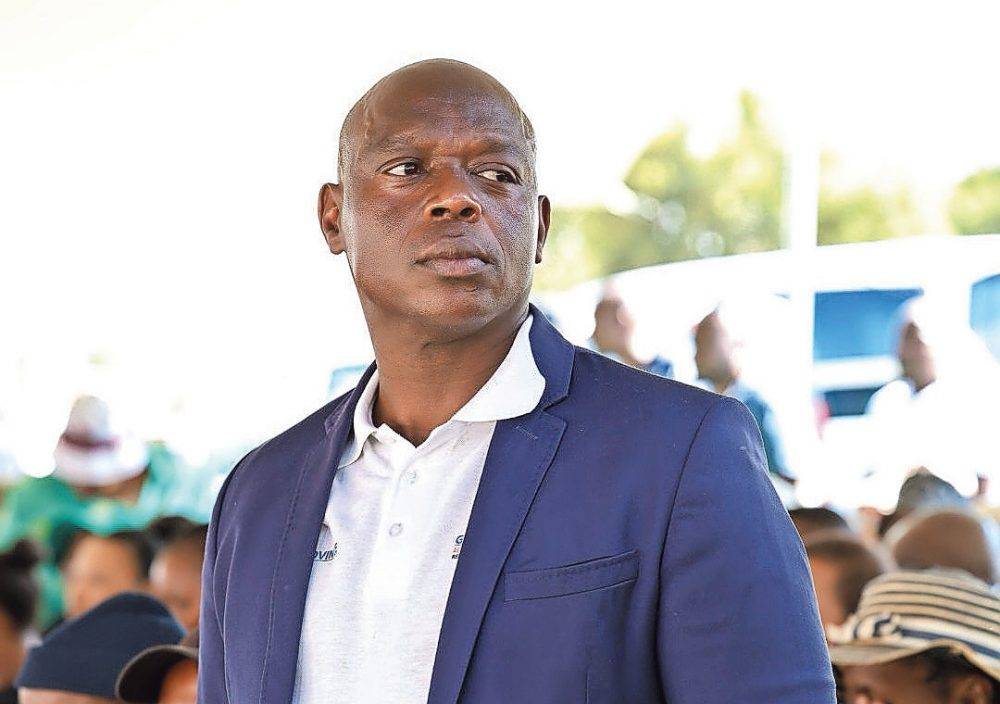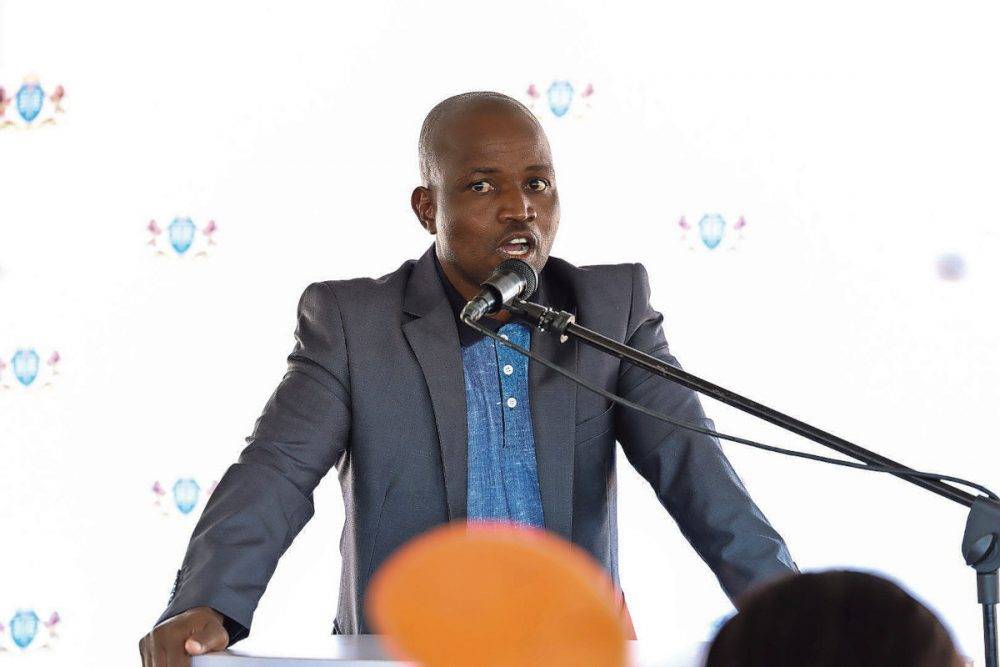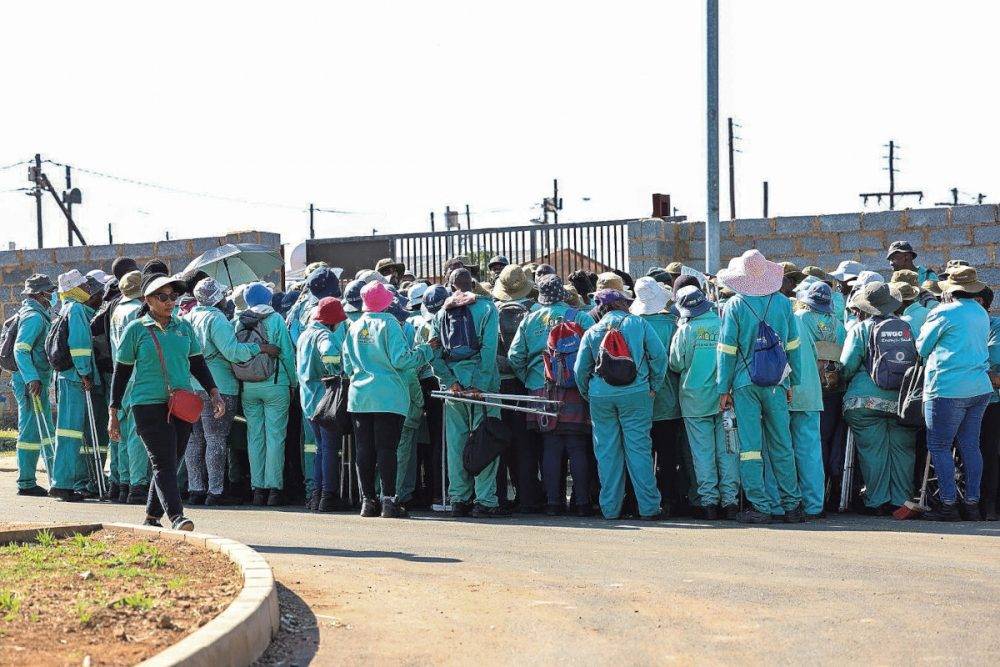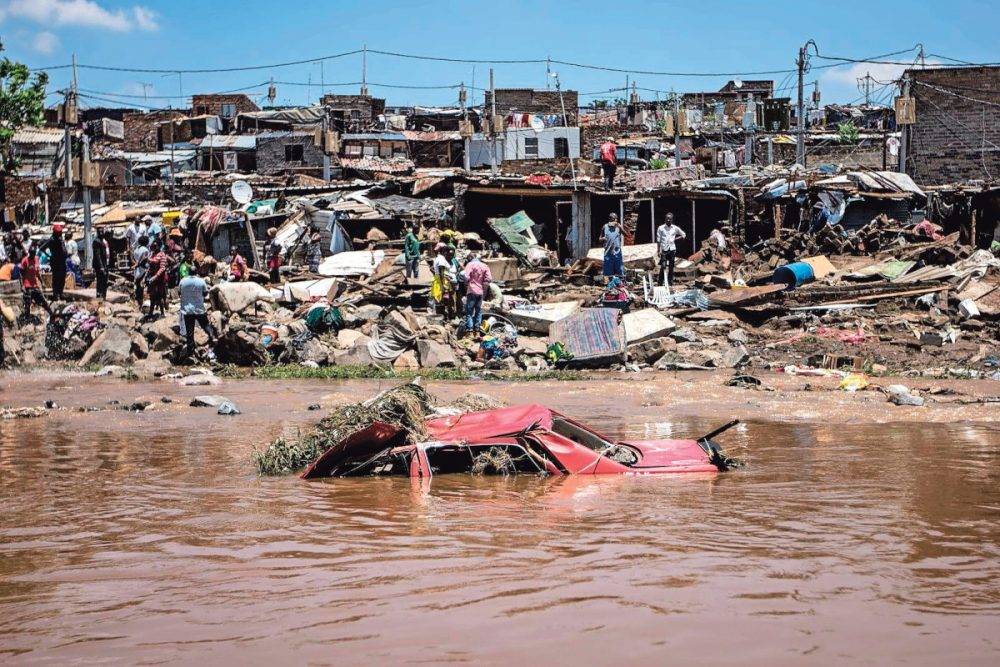MEC Mbali Hlophe wants every household in the province to embrace the idea of food security.
Initiatives by the Gauteng Department of Social Development, Agriculture, Rural Development and Environment
MEC Mbali Hlophe
MEC Mbali Hlophe joined Gauteng government at the young age of 36, when she was appointed the MEC for Sport, Arts, Culture and Recreation by the then Premier David Makhura, in 2019. She is part of a new breed of youth to serve in the Gauteng provincial legislature as part of the ANC’s policy objective of bridging the age gap and ensuring there is a generational mix in its leadership. Following a reshuffle in October 2022, Premier Panyaza Lesufi appointed her to head a super portfolio of merged Departments of Social Development (DSD) and Agriculture, Rural Development, and Environment (GDARDE).
She has held this post for the last 18 months, and yet she has in this short space of time far surpassed her predecessors’ Annual Performances (APP) for the past four years in both departments, by scoring 81% in the Department of Agriculture, Rural Development and Environment and 91% on the Premier’s Delivery Agreement for that department. She also scored 82% in the Department of Social Development, and 83% on the Premier’s Delivery Agreement for that department, securing a strong finish for the Sixth Administration.
Addressing food security
Evidently, MEC Hlophe is not fazed by the responsibility that comes with running two big departments. She said the Premier merged the two departments to accelerate service delivery on food security, substance abuse, homelessness, skills development and environmental sustainability.
She wants to change the perception that social development is about giving out food parcels, by ensuring that agriculture is at the centre of the province’s social economic development. “Giving out food parcels is not sustainable, but empowering people to produce their own food is where agriculture becomes critical. So we teach people to feed themselves for a lifetime and restore their dignity,” she explained.
Among her priorities is to ensure that people in Gauteng, especially the youth, value and embrace agriculture as the future and do not look down upon it or associate it with dirt and backwardness, particularly as predictions indicate that the next set of billionaires in Africa will be from agriculture. The MEC said that her department has tapped into the province’s youthful population, by exposing them to innovative urban agricultural practices such as rooftop and vertical farming. To incentivise and make agriculture more appealing to the youth entails integrating the latest technology and promoting agro-processing.
Building self-reliant communities
Not only does agriculture feed the nation; it also proved to be a resilient sector during the Covid-19 pandemic. The province is faced with a myriad of socioeconomic challenges, chief of which is unemployment and poverty, so it is vital to invest in and encourage communities to start their own food projects and be self-sufficient. Townships have a lot of empty fertile land that is being used as dumping sites. The department, through its 6 000 Green Army (these are 6000 EPWP employees working in agriculture and environmental protection) is transforming these pieces of land into thriving agricultural sites, along with establishing communal farms within schools, clinics and police stations, to name but a few.
The launch of Buy-Back Centre programme
The Gauteng Department for Social Development, Agriculture, Rural Development and Environment (GDARDE) is rolling out a Buy-Back Centre (BBC) programme to promote environmental awareness and waste management in communities across the province. The programme targets small, medium and micro enterprises (SMMEs) operating in townships, informal settlements and hostels (TISH) and equips them with skills, recycling infrastructure and equipment, so that they can meaningfully participate in the waste economy.
 Loyiso Mkwana: Chief Director of Environmental Empowerment Services.
Loyiso Mkwana: Chief Director of Environmental Empowerment Services.
The programme was officially launched this month at Reashoma Buy-Back Centre in Naledi Ext.2 in Soweto. Dignitaries from various small local organisations and established companies involved in waste management and recycling graced the occasion. Loyiso Mkwana, Chief Director: Environmental Empowerment Services, said the programme is based on MEC Mbali Hlophe’s vision to promote environmental sustainability by linking it to economic development.
The MEC said that very few people care about the environment and recycling, and therefore the best way to attract individuals into recycling is by showing them how they can turn their waste into wealth, by selling their waste to Buy-Back Centres. This is why the Department is internationally placing these centres within close proximity to townships, hostels and squatter camps, where waste is a huge problem.
Intermediary role
BBCs, according to Mkwana, play a critical intermediary role between small and community-based recyclers and the big waste facilities. They are more like a local convenience store where you buy your everyday items without having to travel to a mall, he explained. Typically, local waste pickers will collect cans, glass, e-waste material and steel, among others, and take them to a nearby BBC, where they get paid per kilogram.
Skills training for BBCs
Gauteng has 180 centres and the MEC decided to develop them and create a robust ecosystem to enhance their capacity and ensure their sustainability. Every year the department receives applications for training from co-operatives, said Mkwana, and applicants are trained in a variety of critical areas such as finance and bookkeeping, in partnership with Nedbank. “We also train them on safety to know what type of protective equipment or gear they should wear when they handle hazardous materials, and expose them to a range of business opportunities available within the waste management and recycling space,” he said.
Donating pieces of land
Mkwana said there are a number of thriving waste management businesses that have benefitted from their support. Some of them are selling their waste to the secondary market. Once a BBC is formed, it is provided with requisite tools of trade such as industrial bins, waste cages, forklifts and scales. He said the department has spent R23 million on equipment, which was handed out to waste co-operatives and BBCs. The beneficiaries are also given pieces of land, secured through negotiations with sister departments and municipalities in the province.
Reashoma Buy-Back Centre
Reashoma Buy-Back Centre’s Director, Zisebenzele Gininda, was excited about the launch. He said the centre is located on a piece of land that used to be vacant; the local residents used it as a place to dump their waste. “We then rehabilitated it and turned it into what it is today. Not only do we create jobs, but we also protect the environment by recycling waste,” he said. “Currently, we employ 38 people, and almost all of them are the youth, who help to collect and sort waste from households,” said Gininda.
 Zisebenzele Gininda, Director of the Reashoma Buy-Back Centre.
Zisebenzele Gininda, Director of the Reashoma Buy-Back Centre.
City of Johannesburg, and it is also an active participant in the GDARDE’s ‘“Separation at Source” programme. More importantly, noted Gininda, by recycling the waste they are helping to relieve pressure on the province’s four overburdened landfills, which are nearing the end of their lifespans.
MEC Hlophe expressed her views about the great work Gininda is doing: “He is indeed a shining example of the type of social entrepreneurs we want to create: individuals who see challenges as opportunities, as he and his team are doing. In realising the opportunities within the waste economy, he brilliantly exemplifies his name, Zisebenzele, which means: ‘work for yourself’.”
Green Army programme
The Green Army programme forms a critical pillar of the department’s fight against litter and environmental degradation in the province. It currently has 6 000 individuals mobilised from communities in the province. They are paid a monthly stipend to deal with waste management and greening through clean-ups of illegal dumping, and collecting waste in the neighbourhoods, main roads and open spaces. They also educate communities about the importance of waste recycling.
 Members of the Green Army having a pep talk.
Members of the Green Army having a pep talk.
Boitumelo Tshepetse has been a part of the programme for a year now. She said she has not only learned how to deal with waste, but also learned a lot about agriculture. “We are involved in planting trees and we are working closely with schools, where we teach learners about how to plant shrubs. It is such a rewarding feeling to be part of this initiative, because we don’t just clean for ourselves but the entire community. Our message is resonating and most residents are doing their bit to help keep their environments clean,” said Tshepetse.
Her colleague, Kuki Edith Makgatho, concurred: “Apart from cleaning the environment, I also learned about the basics of gardening and the importance of planting vegetables for family consumption. We help community members to be self-sufficient and reduce their reliance on government’s donations.”
Gauteng climate change plan
ecarbonising the economy and building a climate change-resilient province
GDARDE has devised a comprehensive plan to adequately deal with the impact of climate change. Last year it convened a summit where experts in climate change and agriculture, including other strategic stakeholders from business, labour, youth, women and civil society met to hammer out a strategy that will enable it to adequately prepare its systems to mitigate the impact of climate change.
 Climate change is real and affects many South Africans. GDARDE has devised a comprehensive plan to deal with its impacts.
Climate change is real and affects many South Africans. GDARDE has devised a comprehensive plan to deal with its impacts.
Economic hub
The recent floods that devastated KwaZulu-Natal and areas near the Jukskei river in Gauteng drove home the point that climate change is a reality. Although Gauteng has a small landmass compared to the other eight provinces, it is the country’s economic hub and accounts for around 35% to the national GDP. It is home to a number of industries whose combined operations rely on the intensive use of energy generated from fossil fuel, which contribute significantly to greenhouse emissions and environmental pollution in the province. GDARDE aims to find imaginative ways in which the province can sustain its economic activities while ensuring it recalibrates its systems and infrastructure to respond timeously to emergencies, particularly within the agricultural space.
“Climate change is no longer something that we can see as a myth, or the preserve of ‘greenies’, as some like to think. It’s our reality, and affects our daily existence. If you consider the flooding that took place in KwaZulu-Natal and parts of Gauteng and the unpredictable weather, Mother Nature is speaking, and it’s time to listen,” said MEC Hlophe.
Drawing lessons from local and global initiatives
She said her department incorporates some of the regional and international lessons to refine and solidify its approach to address challenges related to climate change. What is crucial is to ensure these responses relate to and bring solutions that are attuned to and enhance the department’s response to the local situation or challenges.
According to the MEC, the department also focuses on the adoption and deployment of cutting-edge technologies to innovate and introduce some technologically-driven methods, such as hydroponic and vertical farming. These latest technologies will empower those who use them, and also enable the department to sustainably produce food for the Gauteng population.
Building climate-proof structures
Building a robust infrastructure is another key focus area of the department. MEC Hlophe believes that infrastructure should be designed and built in such a way that it is climate-proof, and provides solid protection against any potential loss of life or damage to key networks or structures. Several residential areas around Gauteng have been built on sites adjacent to river banks or low-lying areas that are prone to flooding and mudslides. This should be accompanied by a vigorous public education campaign about climate change and its impact. Part of this education should entail dissemination of factual, accurate and relevant information on climate change. Similarly, the capacity of municipalities should be enhanced to help mitigate the risks associated with climate change.